Tea Tree Oil Side Effects: 9 Potential Risks To Avoid
Take advantage of the anti-microbial properties while being aware of the side effects.

Image: Shutterstock
Tea tree oil is one of the most used oils in aromatherapy. However, while its benefits are known, the side effects of tea tree oil are also gaining prominence.
Tea tree oil may cause some negative effects in certain individuals that are dependent on its way of usage. Learn more about what research tells about these negative effects. Continue reading.
 Know The Flip Side: Tea Tree Oil
Know The Flip Side: Tea Tree OilShort-Term Effects
May cause skin irritation, inflammation, rashes, itching, dryness, nausea, diarrhea, and lightheadedness.
Long-Term Effects
May cause hormonal imbalance, skin and scalp sensitivity, ear damage, anaphylaxis, and depressive behavior.
Drug Interactions
Tea tree oil may interact with prescriptions and over-the-counter antibiotics.
When To See A Doctor
If you experience muscle tremors (especially if you have ingested tea tree oil), abdominal discomfort, and skin rashes.
In This Article
Tea Tree Oil – A Brief
Tea tree oil is also known as melaleuca oil. It is an essential oil with a fresh camphor-like odor and an appearance that ranges from pale yellow to colorless. It is extracted from the leaves of the Melaleuca alternifolia plant and is native to Australia.
The oil, though toxic if taken orally, is used in cosmetics and skin creams in lower concentrations.
 Trivia
TriviaTea tree oil benefits are well-known and are attributed to its antimicrobial properties that help treat various dermatological issues like acne, lice, dandruff, etc. However, just like any other natural ingredient, there are certain concerns with respect to their safety.

Key Takeaways
- Tea tree oil might cause depression, muscle tremors, and hormonal disbalance.
- Pregnant women should avoid using tea tree oil as it may quickly stop contractions and put the mother and child at risk.
- Avoid consuming tea tree oil as it may cause stomach issues like diarrhea.
- You can use 2.5% tea tree oil to brush your teeth regularly for 8 weeks to remove dental plaque.
Is Tea Tree Oil Safe?
Tea tree has been found to be poisonous if taken internally.
Since it is a refined composition of numerous naturally occurring chemicals, its misuse might be hazardous.
According to an Australian study, the ill effects of tea tree oil can be minimized by avoiding ingestion. Using diluted oil for topical applications and using only the oil that has been stored properly can further help reduce the risk of side effects (1).
Though tea tree oil is possibly safe when applied to the skin, it might cause allergic contact dermatitisi A skin condition where the skin develops rashes and irritation after coming in contact with an irritant or allergen. in certain individuals (2). As per anecdotal evidence, the oil can also cause skin sensitivity, swelling, skin irritation or itching, headache, fatigue, and skin dryness. It may play a role in liver damage, kidney damage, and low blood pressure. But does it really cause all these side effects?
Tea tree oil is likely unsafe if taken orally. It might cause confusion, unsteadiness, inability to walk, and, in severe cases, coma. However, these side effects of tea tree oil are yet to be backed by solid research.
 Trivia
TriviaIn the following section, we will explore the side effects of tea tree oil more elaborately.
Tea Tree Oil Side Effects
1. May Cause Allergies

Allergic reactions to tea tree oil can range from mild skin inflammation to severe rashes (3). Though it can be used (without much apprehension) by people who are not allergic to it, caution must be exercised while using it in general.
Anecdotal evidence suggests that using tea tree oil on dry or broken skin may cause skin irritation. The symptoms may include stinging, itching that burns, and mild to serious inflammation. Hence, doing a patch test before applying it is recommended.
Also, being allergic to cloves, guava, or eucalyptus may make one more susceptible to develop allergies with tea tree oil. The longer the tea tree oil has been allowed to age, the more likely it is to cause allergies.
Some anecdotal evidence also suggests that tea tree oil may cause sinus congestion, anaphylaxisi A severe allergic reaction caused due to contact with an allergen, which causes symptoms like rashes, nausea, and shock. , cramps, swelling, flushing, nausea, and lightheadedness.
According to one study, though most tea tree oil allergies are caused by the application of the pure oil itself, the cosmetics that contain tea tree oil could also be the culprits in certain cases (4).
Note: Perform a patch test by applying a small amount of tea tree oil to a small, concealable location, such as the inner forearm, after diluting one or two drops of the oil with a teaspoon of carrier oil. Wait 24 hours and check for signs of irritation. If none appear, the oil is likely safe to use on a larger area.
2. May Lead To A Bad Aftertaste
In a UAE study involving mouthwashes (one containing tea tree oil and the other containing a compound called cetylpyridinium chloride, or CPC), the CPC mouthwash was found to have a better antigingivitis effecti An effect that helps reduce or treat gum-related disease, prevents plaque formation, and improves dental health. . Tea tree oil had also induced a bitter aftertaste in one individual (5). The study concludes by stating that more research is needed to understand the antiplaque properties of tea tree oil.
In another study, the ingestion of tea tree oil by a 4-year-old had lead to unresponsiveness. Hence, tea tree oil must not be ingested by children (6).
3. May Cause Hormonal Side Effects
Tea tree oil was found to cause breast growth in adolescent boys. Tea tree oil might act as a potential endocrine disruptor and cause this to happen. According to a report published by The New England Journal of Medicine, gynecomastia (enlargement of a man’s breasts due to hormonal imbalance) was resolved in most cases post the discontinuation of the use of tea tree oil (7).
Similar findings were published in a report by the National Institutes of Health (8).
4. May Cause Diarrhea

One of the negative effects of tea tree oil is diarrhea. Ingestion of tea tree oil can cause diarrhea in certain cases. This can happen as a case of a severe allergic reaction to tea tree oil (9).
5. May Cause Ear Damage
If applied undiluted to mucous membranes, tea tree oil may cause discomfort and swelling. If it is being used to treat ear infections (which tea tree oil is often used for), it is always best to mix it with a carrier oil. A carrier oil like almond or olive oil, in combination with diluted tea tree oil, can be placed in the ear canal to treat related infections.
Practice caution when you are treating ear infections on your own at home. It is best to visit your doctor.
One good way to use tea tree oil (and avoid the troubles) is to dilute a few drops of the oil with a one-fourth cup of warm olive oil. Tilt your head to one side and pour a few drops into the infected ear with a dropper. Keep your head tilted for about a minute to allow the liquid to travel through your ear canal.
However, certain studies suggest not using tea tree oil in the ear as it might cause damage to the inner ear (10).
6. May Cause Muscle Tremors

Tea tree oil was found to cause a lack of muscle coordination upon ingestion. We strongly recommend not ingesting tea tree oil (3).
7. May Cause Skin Irritation And Other Skin Issues
Even as you use tea tree oil topically, it is important to monitor for any worsening skin conditions. Applying the oil to the skin can also cause burning and redness (11).
Mia Switzer, a YouTuber, shared her unpleasant experience of using a tea tree oil-based cleanser in her video. She said, “I started to see pimples, small pimples. The acne started getting worse (i).”
Some believe the tea tree could be harsh on sensitive skin. Anyone susceptible to eczemai A common chronic skin condition characterized by irritation, dryness, inflammation, and redness on the skin. must use tea tree oil with extreme caution, though there is insufficient information in this regard.
It is always better to purchase tea tree oil that is already in the required dilution rather than mixing it yourself. You can also use alternatives like rosemary, lavender, or manuka oils on your skin – as these are gentler but equally effective.
Tea tree oil can also penetrate the outer layers of the skin, thereby increasing the chances of toxicity due to dermal absorption. This toxicity is dose-dependent, and most of the issues can be avoided by using the oil in its diluted form (12).
8. May Cause Depressive Behavior
Though depressive behavior hasn’t been observed in humans yet, related symptoms and signs of toxicity were noted in dogs and cats following the external application of the oil in high doses (13).
Tea tree oil can also cause excessive drowsiness if ingested (13).
Insufficient Evidence For The Following
9. May Cause Scalp Problems

Though tea tree oil is believed to treat scalp issues like dandruff, more research is needed to substantiate its beneficial uses (14). The oil may cause scalp allergies and hair loss in some people, though we have only anecdotal evidence supporting these claims.
Those were tea tree oil side effects. When used topically, it might be safe in certain cases. But ingesting it can lead to tea tree oil poisoning, causing severe side effects such as vomiting, stomach cramps, and dizziness.
Tea tree oil is also often recommended for treating nasal polyps, but some speculate it can also cause side effects. The oil may cause your nose to run, and it might even burn or sting. The polyp might swell before it shrinks. In severe cases, enlarged polyps can hinder breathing and lead to respiratory problems.
Tea tree oil may also lead to mouth inflammation or mouth ulcers. However, we need more research to understand this phenomenon.
Certain side effects of tea tree oil are yet to be established. Hence, you should take precautions before using the oil. Also, consult your doctor.
One way of possibly mitigating the side effects is knowing the dosage of the oil.
What Is The Right Dosage Of Tea Tree Oil?
What happens if you use too much tea tree oil? There is no specific dosage of tea tree oil that has been specified. However, there are some guidelines.
If you are using tea tree oil for
- Dental plaque – Use 2.5 % tea tree oil to brush your teeth daily for eight weeks.
- Acne –Apply 5% tea tree oil as a gel to the skin once every day for three months.
- Dandruff – Apply 5% tea tree oil shampoo to the scalp for three minutes daily for four weeks.
- Eye infections– 50% tea tree oil is to be used as a weekly eyelid scrub for six weeks.
- Skin allergies – 20% to 100% tea tree oil can be applied to the affected areas.
- Vaginal infections – 20% tea tree oil can be applied for 24 hours using a soaked tampon.
Remember, never take tea tree oil orally.
Further, it is equally important to learn the safe application of the oil to maximize the advantages of tea tree oil. Scroll down to know more.
How To Use Tea Tree Oil Safely?
It is important to use tea tree oil properly to prevent skin irritation and other negative effects. Here are some guidelines for incorporating tea tree oil into your routine:
- Do not administer tea tree oil undiluted topically as it is a very harsh ingredient. It is often advised to dilute it to 1% to 2% for skin care uses. Dilute by adding one to two drops of tea tree oil for every teaspoon of carrier oil.
- Use carrier oils such as jojoba, coconut, or sweet almond oil for optimal effects and skin compatibility. These oils offer extra moisturizing properties in addition to diluting the tea tree oil.
- Use your fingertips or a clean cotton swab to apply the diluted tea tree oil mixture to targeted areas. Avoid applying the oil to broken skin or delicate skin like on the area around the eyes to avoid irritation.
In addition to safe usage practices, it is also important to consider specific precautions for using tea tree oil during pregnancy or breastfeeding. Scroll down to know more.
Safety During Pregnancy Or Breastfeeding

There is insufficient data to support the safety of tea tree oil during pregnancy. Some anecdotal evidence suggests that using tea tree oil during labor can lead to the cessation of contractions of the uterus, which might put the baby and the mother at risk (this may happen if the uterus is exposed to tea tree oil). However, research is limited in this aspect.
There is no data indicating the excretion of tea tree oil components into breast milk (15). Neither is there any data on the safety of tea tree oil for nursing mothers or infants. The topical tea tree oil application is usually well tolerated. But it must never be taken orally.
Interactions With Drugs And Herbal Supplements
Tea tree oil must be used with caution when combined with antibiotics (13).
Infographic: Top Side Effects Of Tea Tree Oil
Tea tree oil is extensively used in several skin care products and home remedies for skin and hair. But before you revel in its tremendous benefits, it is also important to note its downsides. It may save you from any unpleasant experiences.
Check out the infographic below to learn more about the adverse effects associated with tea tree oil that you should watch out for.
Some thing wrong with infographic shortcode. please verify shortcode syntax
Tea tree oil is an essential oil with a fresh odor and medicinal properties. It has been used to treat several medical conditions. However, the side effects of tea tree oil have also been reported. It may cause allergic reactions in some individuals and lead to a bad aftertaste, diarrhea, ear damage, muscle weakness, and tremors. As this oil is toxic when ingested, it should not be taken internally. Hence, consult your doctor before using this oil if you have any health conditions.
Frequently Asked Questions
Can you put tea tree oil directly on your skin?
No, you should never put tea tree oil directly on the skin. It is crucial to mix it with a carrier oil, like coconut, olive, or almond oil, before using it on your skin.
Can I leave tea tree oil on my face overnight?
Yes, you can leave tea tree oil on your face overnight. But remember to dilute it with a carrier oil before applying it to your skin.
How should one test for allergic reactions or sensitivity to tea tree oil before using it regularly?
You can conduct a patch test on your elbow to test tea tree oil products for allergic reactions before applying it to any other part of your body.
Illustration: Tea Tree Oil Side Effects And Drug Interactions + Right Dosage

Image: Stable Diffusion/StyleCraze Design Team
Unleash the power of tea tree oil with its numerous health, skin, and hair care benefits. Navigate the potential risks and rewards of this potent ingredient in this video.
Personal Experience: Source
StyleCraze's articles are interwoven with authentic personal narratives that provide depth and resonance to our content. Below are the sources of the personal accounts referenced in this article.
i. Tea tree oil ruined my face & how i cleared it back uphttps://www.youtube.com/watch?v=lu0xQILhFTI
References
Articles on StyleCraze are backed by verified information from peer-reviewed and academic research papers, reputed organizations, research institutions, and medical associations to ensure accuracy and relevance. Read our editorial policy to learn more.
- A review of the toxicity of Melaleuca alternifolia (tea tree) oil, Food and Chemical Toxicology, US National Library of Medicine, National Institutes of Health.
https://pubmed.ncbi.nlm.nih.gov/16243420/ - Allergic contact dermatitis to plant extracts in cosmetics, Seminars in Cutaneous Medicine and Surgery, US National Library of Medicine, National Institutes of Health.
https://pubmed.ncbi.nlm.nih.gov/24175401/ - Tea Tree Oil, National Center for Complementary and Integrative Health.
https://www.nccih.nih.gov/health/tea-tree-oil - Tea tree oil: contact allergy and chemical composition, Contact Dermatitis, US National Library of Medicine, National Institutes of Health.
https://pubmed.ncbi.nlm.nih.gov/27173437/ - Comparative antiplaque and antigingivitis effectiveness of tea tree oil mouthwash and a cetylpyridinium chloride mouthwash: A randomized controlled crossover study, Contemporary Clinical Dentistry, US National Library of Medicine, National Institutes of Health.
https://www.ncbi.nlm.nih.gov/pmc/articles/PMC4229754/ - Ingestion of tea tree oil (Melaleuca oil) by a 4-year-old boy, Wolters Kluwer.
https://login.wolterskluwer.eu/as/authorization.oauth2?client_id=HLRP.Ovid&redirect_uri=https%3A%2F%2Foce.ovid.com%2Fsignin-oidc&response_type=code&scope=openid%20profile%20email&code_challenge=JFOqnwXoeySwlFeuYfcRn_rh0bfBdILL7v01Rksa_TQ&code_challenge_method=S256&response_mode=form_post&nonce=638747783043274042.OTliZmZlZGQtYzlhNi00M2FmLTk0OWYtZmUyZDE4NDA1Y2I2ZWY0MWM2YjItOGEzZS00ZTRiLWIzZDUtZDQzMjBkMTdiOWU5&validator_id=OCEPasswordValidator&pfidpadapterid=HLRPGenericCompositeAdapter&prompt=none&state=CfDJ8L4flGwGCBdPoBN8WpcuqlqRFMxQq4fowv-ppTWNhkzIIoXmThmSwhC9OQ8lCA8qFDq2acur-H0cHfwZ2uTvfniFLKMvQPAzype9YLFR-i7OQWJubAxZVtZArJqruElcVzL6mAJT4Tw1PwgA7an0-1ZKekopfYlkBPekjqKi8ES5XFdhv7E-Kcl0ltyEtra4OZtIOJnXpuATm4Wj-mvQolMKYLL2EOME9PJWqeTwBv6XwWGBWucExLUlVu4S7AlGtBHC7h4i9_TSURr1mYJiVnc31okD6xDWtR5ByC0X_PCau21iS9ZrEdnAcedRLSVK18FC4Ug5QA6PnZAJBiG3aMoqWsozsahasGVAQSjxLq2MlFQymuBqF_3jx_HMInfqsLKYs94tZse_voDYqa5xBL874kwP4pvWKcNp93DYAuefqulCsTrovwKizPPz5lllsE4uNOksAoltnjT9A3MeDcpkjmP0uy_G6-oC_uvwgZzlYFG4yFgaMkhb7Iok7L76Og&x-client-SKU=ID_NET8_0&x-client-ver=7.1.2.0 - Prepubertal Gynecomastia Linked to Lavender and Tea Tree Oils, The New England Journal of Medicine.tle
https://www.nejm.org/doi/full/10.1056/NEJMoa064725 - Lavender and Tea Tree Oils May Cause Breast Growth in Boys, National Institutes of Health.
https://www.nih.gov/news-events/news-releases/lavender-tea-tree-oils-may-cause-breast-growth-boys - Pharmacological attributes and nutritional benefits of tea tree oil, International Journal of Biosciences.
https://citeseerx.ist.psu.edu/viewdoc/download?doi=10.1.1.652.3826&rep=rep1&type=pdf - A study of tea tree oil ototoxicity, Audiology & neuro-otology, US National Library of Medicine, National Institutes of Health.
https://pubmed.ncbi.nlm.nih.gov/10720822/ - Melaleuca alternifolia (Tea Tree) Oil: a Review of Antimicrobial and Other Medicinal Properties, Clinical Microbiology Reviews, US National Library of Medicine, National Institutes of Health.
https://www.ncbi.nlm.nih.gov/pmc/articles/PMC1360273/ - The Influence of Tea Tree Oil (Melaleuca alternifolia) on Fluconazole Activity against Fluconazole-Resistant Candida albicans Strains, BioMed Research International, US National Library of Medicine, National Institutes of Health.
https://www.ncbi.nlm.nih.gov/pmc/articles/PMC4334616/ - Tea tree oil, PubChem, US National Library of Medicine, National Institutes of Health.
https://pubchem.ncbi.nlm.nih.gov/compound/Tea-tree-oil - Treatment of dandruff with 5% tea tree oil shampoo, Journal of the American Academy of Dermatology, US National Library of Medicine, National Institutes of Health.
https://pubmed.ncbi.nlm.nih.gov/12451368/ - Tea Tree Oil, Drugs and Lactation Database, National Center for Biotechnology Information, National Institutes of Health.
https://www.ncbi.nlm.nih.gov/books/NBK501884/
Read full bio of Madhu Sharma
Read full bio of Ravi Teja Tadimalla
Read full bio of Arshiya Syeda
Read full bio of Sindhu Koganti






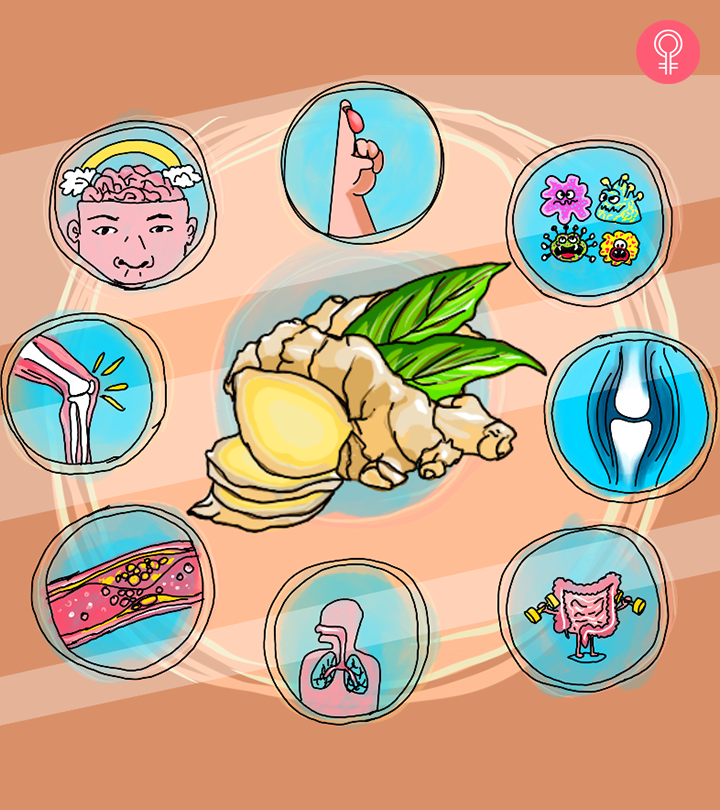
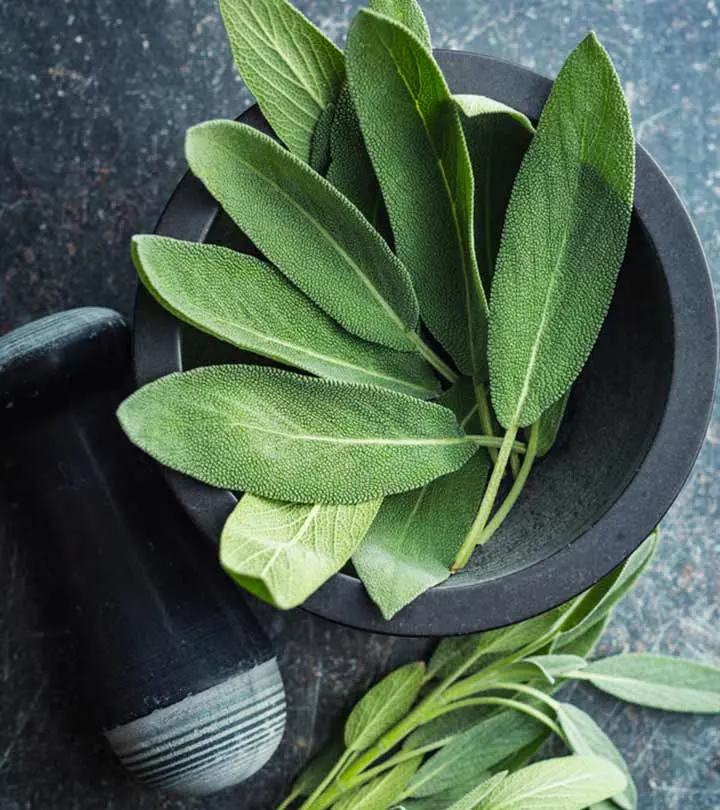






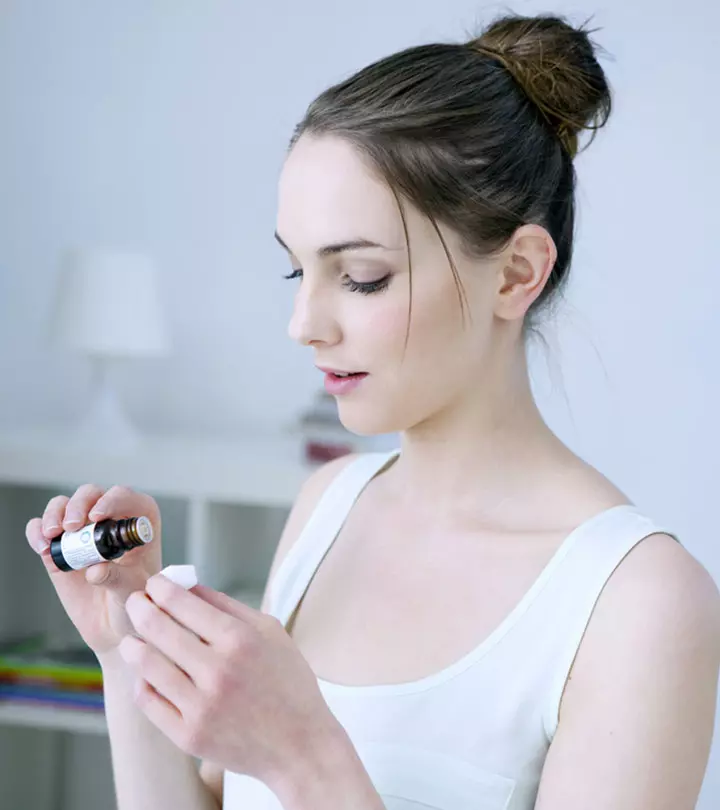


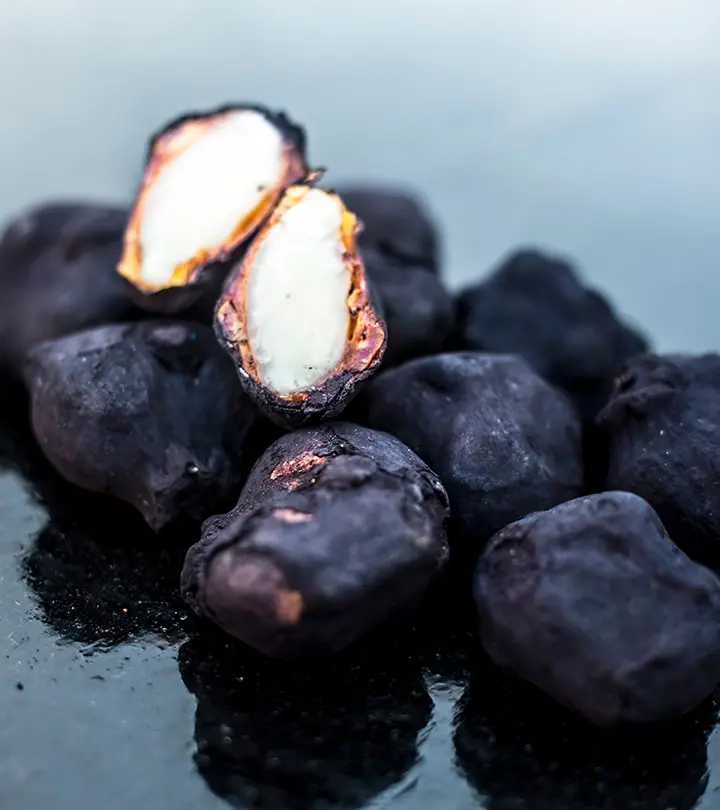





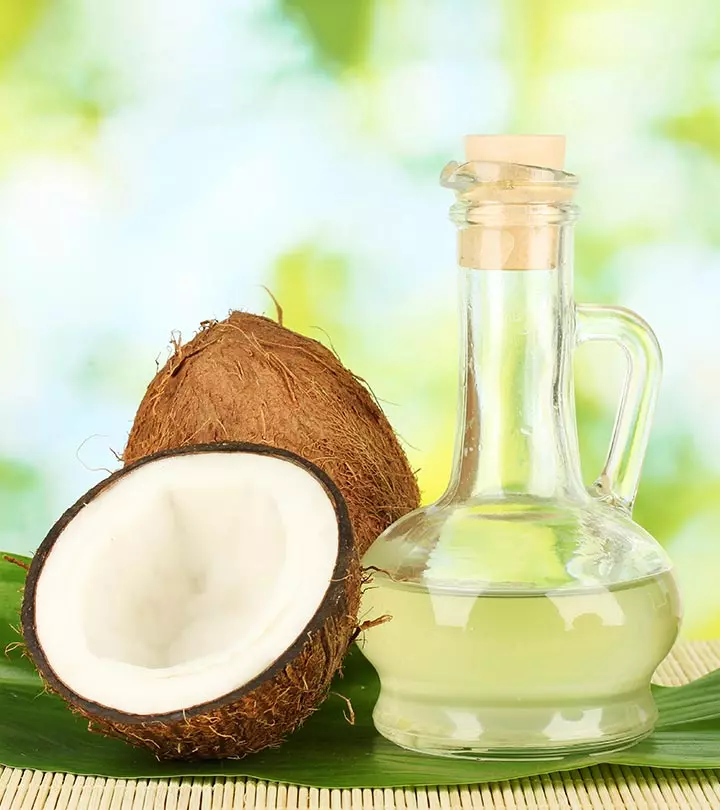


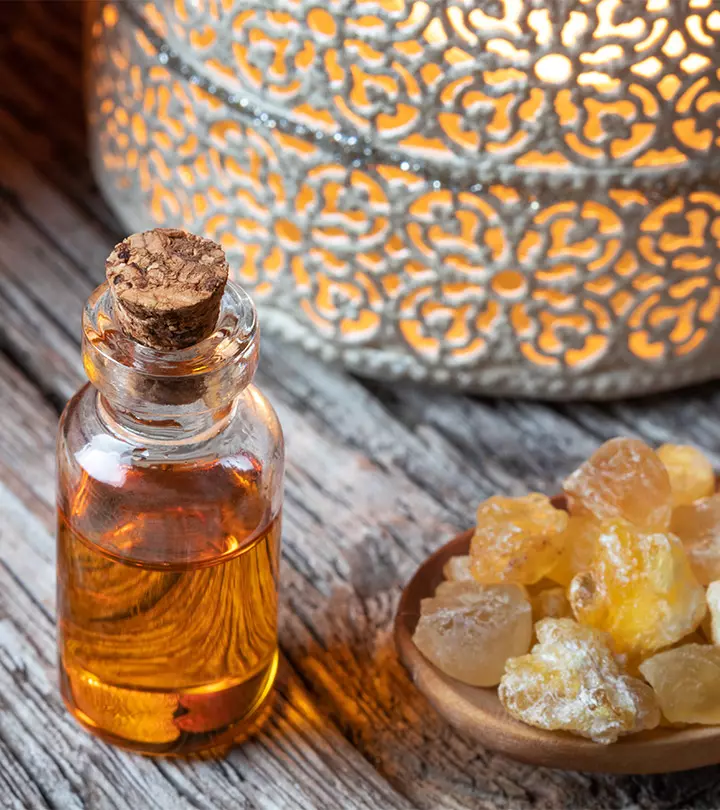
Community Experiences
Join the conversation and become a part of our empowering community! Share your stories, experiences, and insights to connect with other beauty, lifestyle, and health enthusiasts.